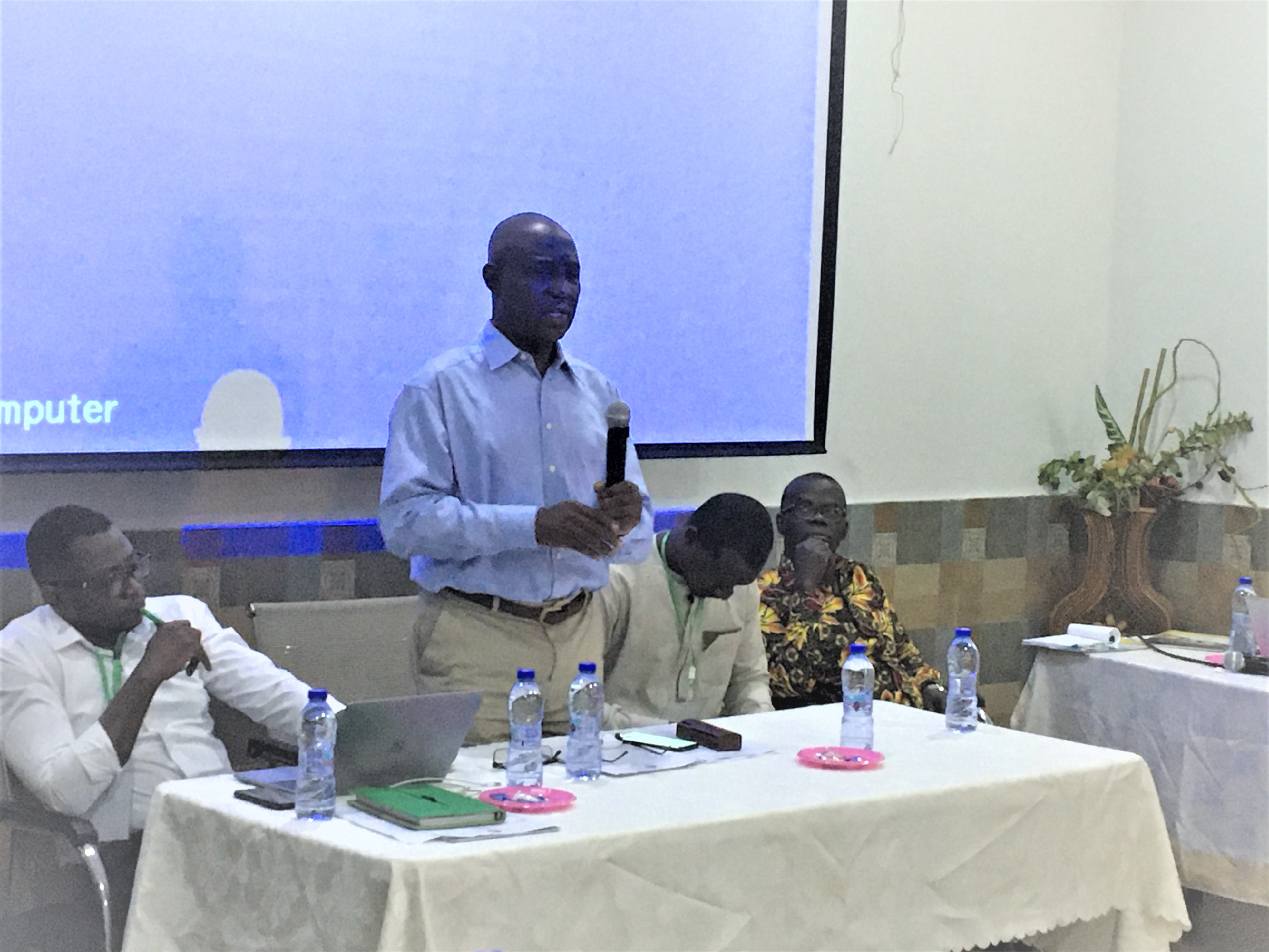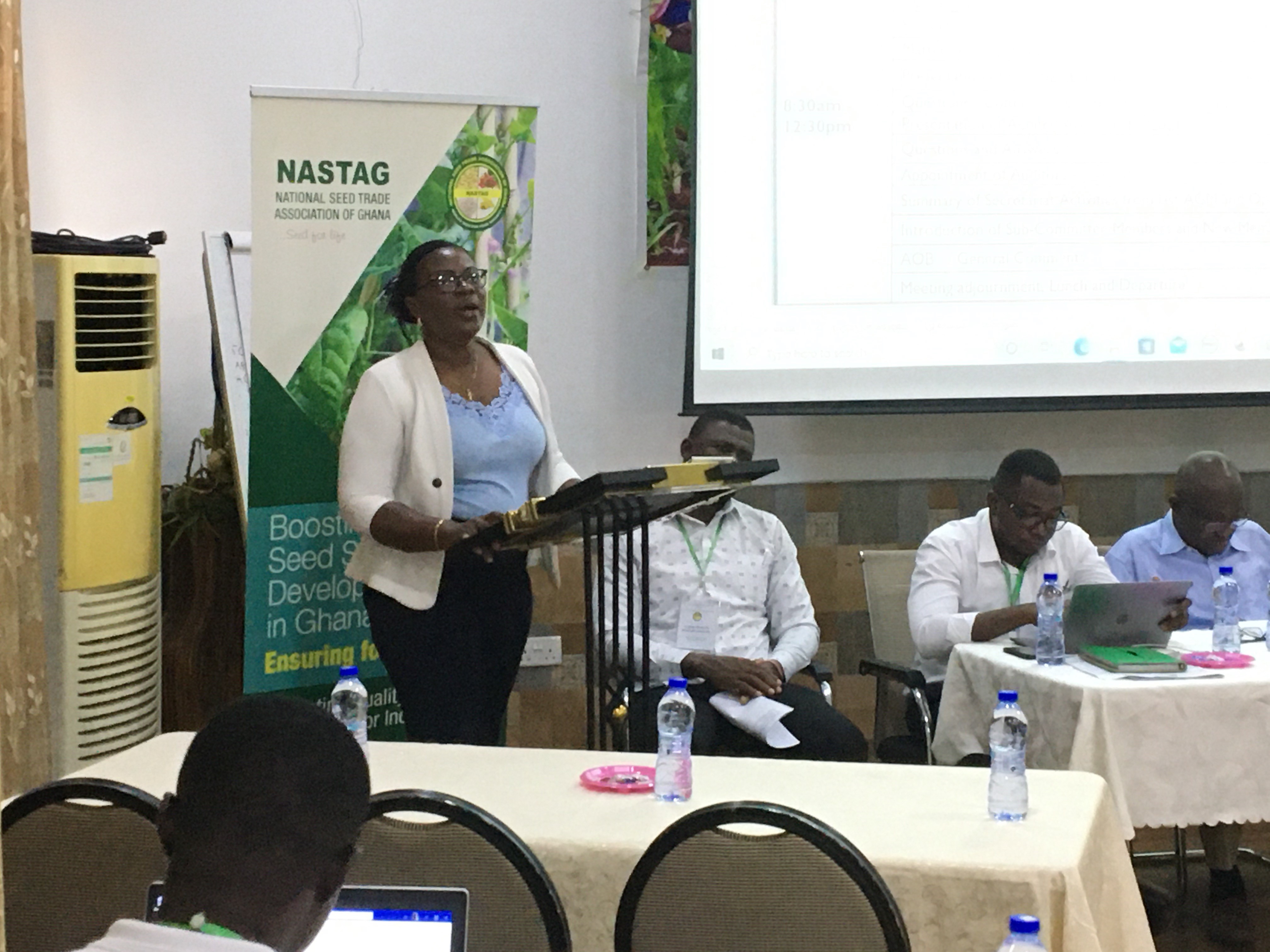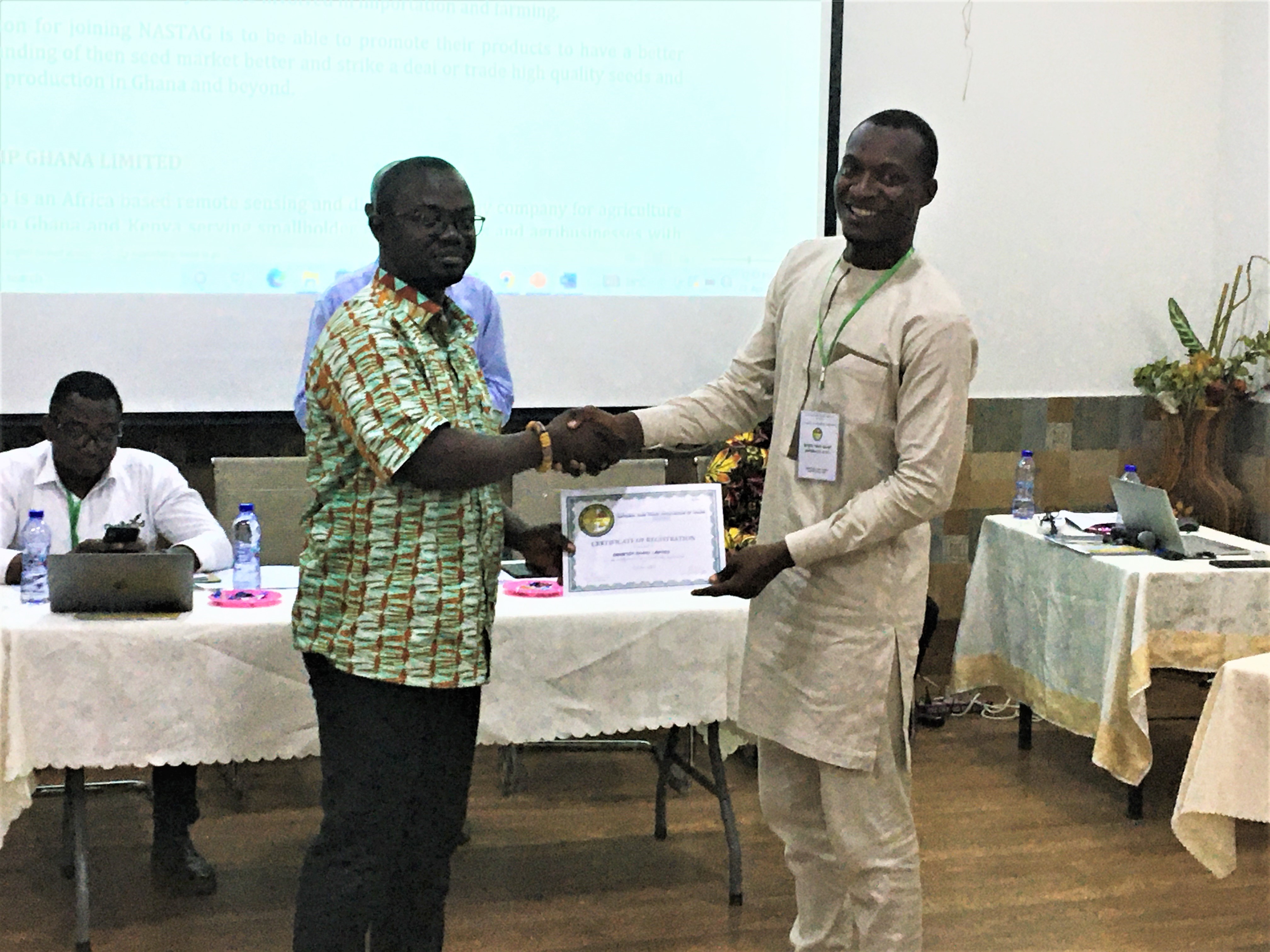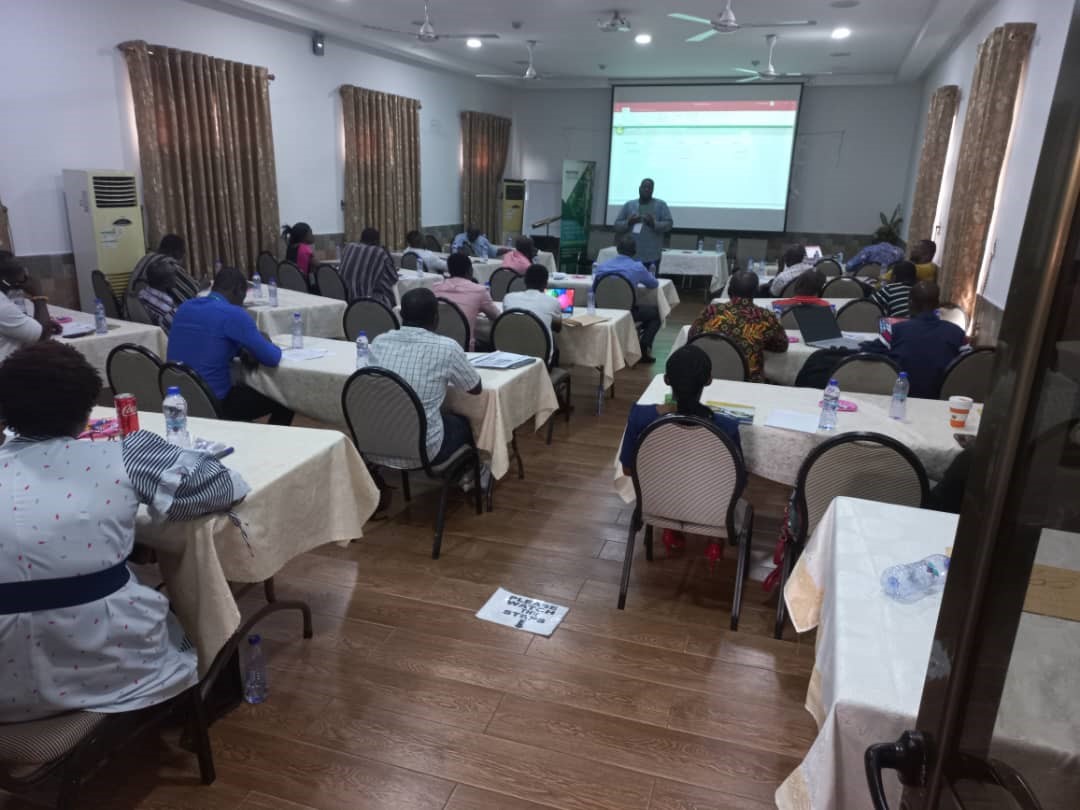The 6th Annual General Meeting (AGM) of the National Seed Trade Association of Ghana (NASTAG) was held on 21st and 22nd April, 2022 at Anita Hotel, Ejisu-Kumasi. The two-half days event focused on the Statutory Annual General Meeting procedures which brought members of the Association to speed on the current position of the Association. Highlights focused on the financial status of the organization via the Audited Accounts presented and the progress made in the year 2021 coupled with the challenges encountered and efforts made aimed at addressing the challenges.
The 2021 AGM also gave critical attention to the Revised Strategic Plan for 2022 – 2026 reviewed by a team of consultants to chart a new course for the Association in light of new global developments. In discussing the document, the General Assembly called for some revisions for further consideration and adoption. A comprehensive data on the seed sector in Ghana compiled by a consultant through financial support under the USAID – GIAT project was also presented to members. The content of the presentation was acknowledged as very relevant which in collaboration with the government counterpart would help in making informed decisions on the seed sector.
 |
 |
 |
 |
|
From left to corner: The President – M.r Kwabena Adu - Gyamfi giving his opening Remarks; Top left: The CEO - Mrs. Augusta Clottey taking members through Minutes of Previous Meeting, Down Left Corner - The Vice President, Mr. Seidu Mubarak Presenting New Member’s Certificate to the Rep. Demeter Ghana and Down Right corner: Mr Kweku Turkson taking members through a new Data collection form. |
|
Representatives of thirty – five (35) out of Fifty-eight (58) association members were present at the meeting chaired by the President of the Association, Mr. Kwabena Adu - Gyamfi.
In his welcome statement, he emphasized that a strong seed system with linkages between all stakeholders is essential for delivering improved varieties and quality seeds which in turn are crucial for national food and nutrition security and the survival of rural communities. He further added that in order to guarantee access to the quantity and quality of seeds, enabling environment and desired systems must be put in place and fully operational to safeguard them. National seed services must also be strengthened, through the involvement of relevant stakeholders; both public and private, to ensure the development of the entrepreneurial capacity of seed industry enterprises.
At the end of the meeting, members acknowledged the importance of the constant flow of information between members and the Secretariat.